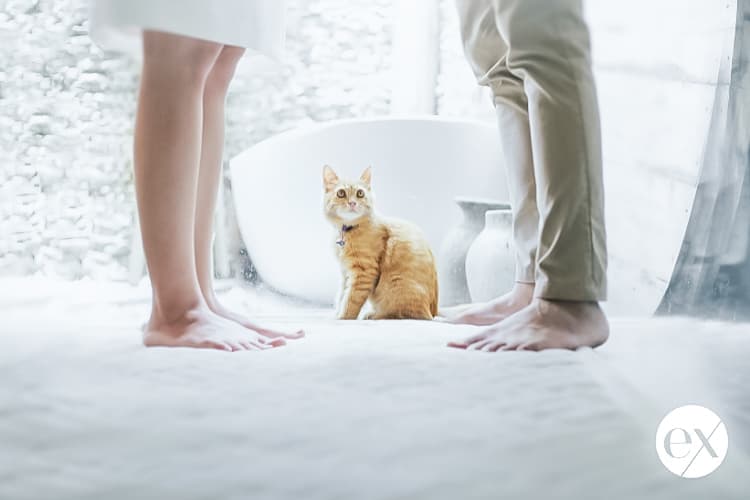
PET CUSTODY when the love for our furry little friend turns into a battle over ownership. What makes pet custody so tricky is that pets fall into a sort of grey area for custody. Across the United States, pets are generally considered chattel. The word “chattel” sounds like an old-fashioned farm word, but it’s actually a common law term for tangible items, both animate and inanimate, that can be transported from place to place.
Essentially, your pet is given the same amount of significance as your favorite toaster oven. No hate towards the toaster oven, a modern marvel in its own right, but pets are living beings with intrinsic value that cannot and should not be monetized. I mean, in the context of a divorce, next to our children, come our pets. You’re not alone in thinking that the law and the courts would give pets a little bit more priority than a kitchen appliance.
In New Jersey, the Houseman v. Dare case, decided in 2009 that pets have a “special subjective value.” The court ruled that $1500 was insufficient compensation for a woman whose ex-fiance kept their dog, despite an oral agreement that she would have ownership. During the case, the Animal Legal Defense attorneys argued that in custody disputes over pets, the courts should take into consideration the best interest of the animal.
How do you determine what is in the best interest of the animal? Well, the same way courts analyze what’s in the best interest of the children when there’s dissolution of a marriage or a break up. Who took the most care of the pet? Who walked and fed the pet? Who spends the most time with the pet? These are all questions that aid in building a reputable narrative for the individual who wants primary ownership of the animal.
When money does not suffice as adequate compensation, in legal terms, it is called the remedy of specific performance. In cases of pet custody, this means that pet owners going through separation will have to come to an agreement or an arrangement of sorts similar to parents with children.
So, what about when you bought the dog together, you’ve had the dog for six years, you’re getting divorced? What do you do? How can you decide? Is there such a thing as financial pet support?
The more you can resolve amongst yourselves in a final agreement, the better you are. Agreements are usually the ideal set up for separating owners. Establishing an agreement, preferably with a mediator, is the ideal way to sort out custody with your pet. Agreements can lead to successful custody arrangements. Just like with children, there is full or joint custody. Sometimes one individual has primary custody of the pet, or both parties alternate. In some cases the dog actually gets included with the children. So if the kids go to dad’s place every other weekend, so does the dog. In exceptional circumstances, where the animal requires certain specialized food and medication, the cost to support the animal gets factored in the allocation of money during the divorce.
At the end of the day, pets have an enhanced intrinsic value to them. Unlike a toaster oven, the love you have for them is something you can’t replace. When going through a divorce or separation, there’s no value monetarily that can compensate for something as priceless as the connection you have with your pet.
Leave a Comment
You must be logged in to post a comment.










